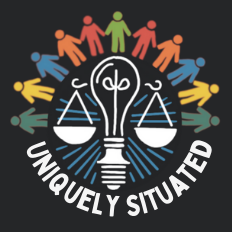The Importance of Civic Engagement in Today’s Society
Civic engagement is a cornerstone of a democratic society, ensuring that individuals have the opportunity to participate actively in their community and influence government decision-making. It encompasses various activities, including voting, attending town hall meetings, participating in advocacy campaigns, and engaging in community service. The significance of civic engagement lies in its ability to empower citizens, enabling them to voice their opinions and effect change within their communities. By engaging civically, individuals not only contribute to the democratic process but also help raise awareness about critical social issues that require collective attention.
The role of nonprofits in facilitating civic engagement is particularly noteworthy. These organizations often serve as conduits for education and mobilization, providing essential resources and information to communities. Nonprofits frequently organize workshops and informational sessions, aimed at informing citizens about the importance of participating in elections and understanding legislative processes. Through these efforts, they equip individuals with the knowledge necessary to make informed decisions and to engage in advocacy efforts. Moreover, nonprofits can help bridge the gap between citizens and policymakers, fostering communication that can lead to significant policy changes.
Increased civic engagement tends to yield positive outcomes for communities. When individuals come together to address local and national issues, they cultivate a sense of community cohesion. This is particularly beneficial for marginalized populations, who may otherwise feel excluded from the decision-making process. Engaging these voices not only amplifies diverse perspectives but also leads to more inclusive policies that reflect the needs of the entire community. Ultimately, fostering a culture of civic engagement enhances not only individual empowerment but also contributes to a healthier democracy.
Advocating for Criminal Justice Reform: The Nonprofit Mission
Nonprofit organizations play a crucial role in advocating for criminal justice reform, addressing systemic issues that compromise the integrity and fairness of the legal system. Racial disparities, mass incarceration, and insufficient mental health support are critical concerns in the current landscape, demanding urgent attention and action from both policymakers and the public. Nonprofits work tirelessly to highlight these injustices, seeking to implement meaningful changes that can foster a more equitable justice system.
One of the primary strategies employed by nonprofit organizations is community education. Through workshops, seminars, and outreach programs, these organizations aim to inform citizens about their rights and the workings of the criminal justice system. This educational initiative empowers individuals to engage in advocacy efforts, urging them to advocate for legislative changes and increased accountability within the system. By fostering awareness, nonprofits create a knowledgeable community equipped to challenge injustices and demand reform.
Legislative advocacy is another significant aspect of the nonprofit mission. Organizations often collaborate with lawmakers to draft and promote bills that address crucial issues such as sentencing reform, decriminalization of certain offenses, and enhanced mental health services. These coalitions can effectively influence policy changes by providing research, testimonies, and grassroots support that underpin reform efforts. Moreover, many nonprofits partner with other organizations, leveraging shared resources and expertise to amplify their impact.
Successful case studies illustrate the profound effect that nonprofit initiatives can have on criminal justice reform. For instance, organizations that have spearheaded campaigns to eliminate cash bail have seen substantial results in reducing pretrial detention rates. Such victories highlight the power of collective action and the essential role nonprofits play in shaping a just and fair legal framework.
